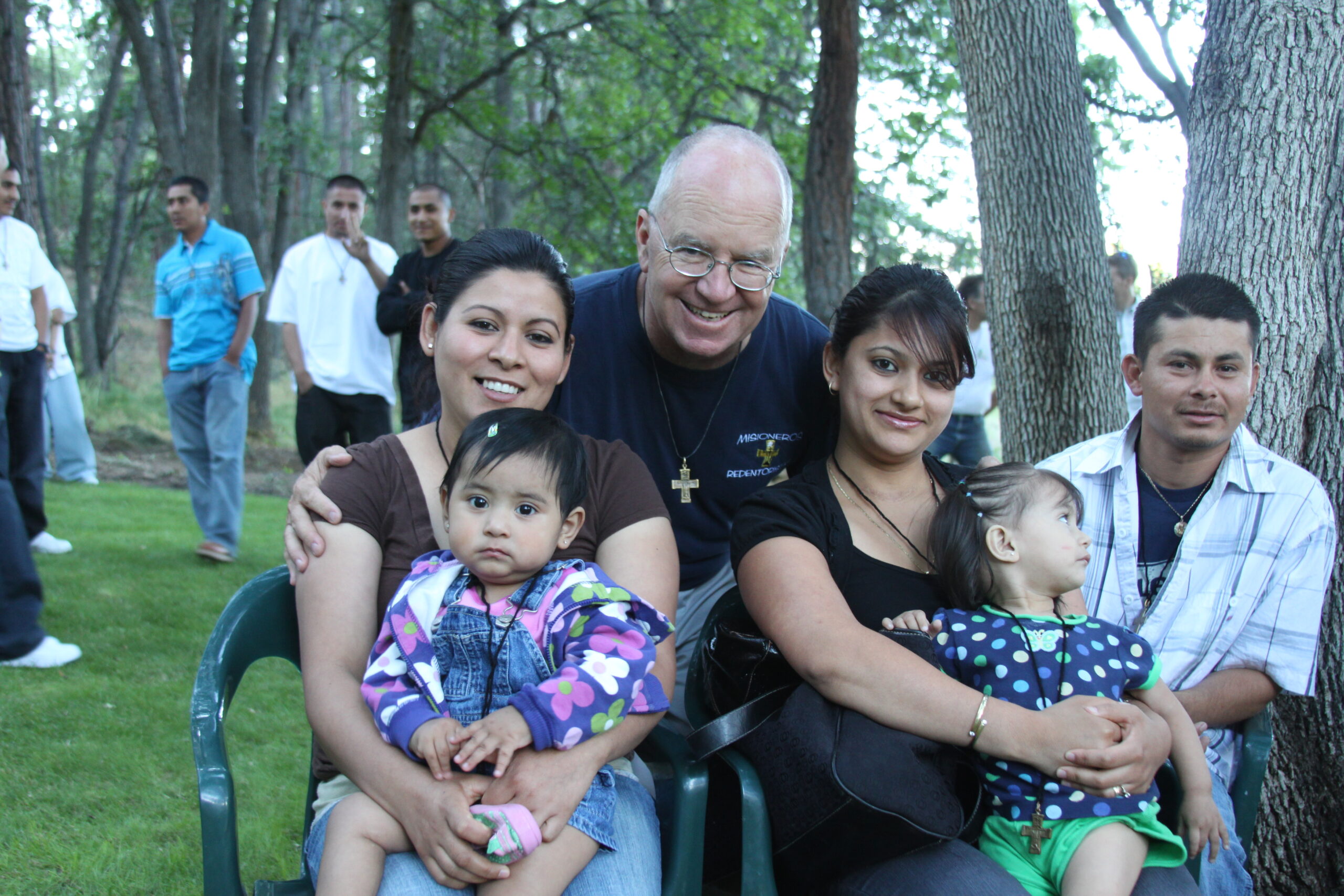Evangelization 2021: Primeros educadores de sus hijos – New Methods
Los padres son los primeros educadores de sus hijos en los caminos de la fe
“Los padres deben ser reconocidos como los primeros y principales educadores de sus hijos”. (GE, 3)
El papel de los padres es esencial en la vida de los niños. El reconocimiento explícito del papel de los padres en el Concilio Vaticano II en la Declaración sobre la educación cristiana se repite litúrgicamente en el sacramento del bautismo cuando se les pregunta a los padres si comprenden su responsabilidad de formar al niño en las formas de fe. La afirmación del lugar de los padres en la educación de los niños parece obvia, pero advierte de una excesiva profesionalización de la educación de tal manera que separe a los niños de la guía de los padres. Los fundamentos morales, religiosos y espirituales de la vida comienzan en la familia.
Como seminarista en la década de 1960, nuestro seminario menor mejoró nuestros programas académicos en el proceso de acreditación de nuestra escuela secundaria. El proceso de acreditación fue bastante exigente para nuestros profesores, y como estudiantes apreciamos la elevación de nuestra formación académica cuando ingresamos a la educación superior y la vida profesional.
En los Estados Unidos, era una experiencia común en las familias que cada generación obtuviera niveles de educación más altos que sus padres. Muchos veteranos de las fuerzas armadas recibieron becas para la educación superior. Era común que las familias celebraran al primer miembro de la familia en graduarse de la escuela secundaria, al primero en graduarse de la universidad y otros primeros. A medida que la educación se volvió más formal, los obispos en el Concilio creyeron importante reconocer que la educación en la fe no provenía únicamente de profesores e instituciones. Es lo primero en el hogar. La fe se enseña mediante el testimonio de la vida de los padres. La liturgia del Bautismo para niños reconoce el papel de los padres preguntando a los padres si aceptan la obligación de enseñar a los niños en la fe.
Desde que comencé a estudiar en nuestro seminario universitario hasta hoy, he estado involucrado en la educación religiosa y la catequesis. Recibo una maestría en educación religiosa. He utilizado una variedad de libros de texto y programas durante mi tiempo como sacerdote en mi ministerio. Todos ellos han sido útiles y todos tienen limitaciones. Reconozco que ningún programa se adapta a las necesidades de todos. Como redentorista llamado a trabajar con personas al margen de la iglesia y la sociedad, busco formas de ayudar a aquellos a quienes el ministerio ordinario no llega.
El ministerio migrante me presentó a personas de fe sencilla pero profunda que quieren transmitir su fe a sus hijos. Es fundamental que la catequesis esté disponible en los momentos en que el trabajador pueda asistir. Debe estar disponible en lugares accesibles para los pobres. Y necesitamos catequistas disponibles en los horarios y lugares propicios para evangelizar a quienes no pueden asistir a los programas ordinarios de nuestras parroquias. He experimentado ofreciendo programas fuera de las estructuras parroquiales, ofreciendo clases en parques, lecherías, garajes, graneros y cualquier lugar disponible para reunir personas de fe. Mi consejo favorito para los catequistas es recordarles que su trabajo no es enseñar la fe a los niños, sino ayudar a los padres a enseñar la fe a sus hijos.
(Mañana: Ayudar a los padres a enseñar a sus hijos)
Parents are the first educators of their children in the ways of faith
“Parents must be acknowledged as the first and foremost educators of their children.” (GE, 3)
The role of parents is paramount in the lives of children. The explicit recognition of the role of parents at the Second Vatican Council in the Declaration on Christian Education is repeated liturgically in the sacrament of baptism as parents are asked if they understand their responsibility of forming the child in ways of faith. The affirmation of the place of parents in the education of children appears obvious, but gives caution to overly professionalizing education in such a way that separates children from the guidance of parents. Moral, religious and spiritual foundations in life begin in the family.
As a seminarian in the 1960’s, our minor seminary upgraded our academic programs in the process of having the high school seminary accredited. The accreditation process was quite demanding of our professors, and as students we appreciated the elevation of our academic formation when we entered higher education and professional life.
In the United States, it was a common experience in families that each generation gained higher levels of education than their parents. Many veterans of the military received grants for higher education. It was common for families to celebrate the first member of the family to graduate from high school, the first to graduate from college, and other firsts. As education became more formal, the bishops at the Council believed it important to recognize that education in the faith did not solely come from professors and institutions. It comes first in the home. The faith is taught by the testimony of the lives of the parents. The liturgy of Baptism for children recognizes the role of the parents by asking the parents if they accept the obligations of teaching children in the faith.
From the time that I began studies in our college seminary to today, I have been involved in religious education and catechesis. I receive a master´s degree in religious education. I have used a variety of textbooks and programs over my time as a priest in my ministry. All of them have been helpful and all have limitations. I recognize that no program fits the needs of everyone. As a Redemptorist called to work with people on the margins of church and society, I look for ways to help those who ordinary ministry does not reach.
Migrant ministry introduced me to people of simple but profound faith who want to pass their faith on to their children. It is essential to make catechesis available at times when the worker can attend. It needs to be available in places accessible for the poor. And we need catechists available at the times and places conducive to evangelizing those unable to attend the ordinary programs of our parishes. I have experimented in offering programs outside of parish structures, offering classes in parks, dairies, garages, barns and any place available to gather people of faith. My favorite advice for catechists is to remind them that their job is not teaching children the faith, but helping parents teach their children the faith.
(Tomorrow: Helping parents teach their children)




